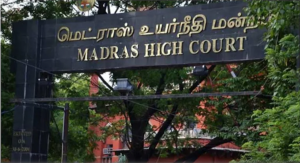 Facts of the Case:
Facts of the Case:
The petitioner was subject to a surprise inspection under Section 67 of the TNGST Act, 2017 in September 2023. During the inspection, the authorities observed nine defects in the petitioner’s business premises, which were noted and later reflected in the show cause notices (SCNs). Based on the inspection report, the assessing authority issued show cause notices dated 10.05.2024 under Section 74, directing the petitioner to show cause why tax, interest, and penalty should not be paid for the financial years 2018–2019 to 2022–2023 and the period April–August 2023. The SCNs alleged short payment of tax and wrongful availing of input tax credit (ITC) but did not allege fraud, wilful misstatement, or suppression of facts.
The petitioner did not respond to the SCNs. Subsequently, orders were passed confirming the demands of tax, interest, and penalty. The petitioner challenged the orders through writ petitions. The petitioner filed writ petitions challenging the orders. The Revenue argued that the petitioner had missed the statutory appeal window and could not challenge the matter through writ proceedings.
The petitioner contended that the SCNs and impugned orders failed to satisfy the jurisdictional requirement of Section 74, as there was no allegation of fraud, wilful misstatement, or suppression of facts, and the SCNs used the term “determined” instead of “specified,” implying pre-determination.
The court referred to authoritative precedents and circulars highlighting that extended limitation provisions must be construed strictly. SCNs must clearly indicate the allegations of fraud, suppression, or misstatement.
Issue:
Whether proceedings under Section 74 of the TNGST Act are valid when neither the SCN nor the assessment order alleges fraud, wilful misstatement, or suppression of facts. Whether the writ petitions are maintainable when the jurisdictional facts required for invoking Section 74 are absent, despite the existence of statutory appeal remedies.
Held that:
The Court held that Section 74(1) can only be invoked if tax shortfall arises due to fraud, wilful misstatement, or suppression of facts. Mere short payment or delay does not suffice. Both the show cause notice and impugned order must indicate the presence of these elements. In the present case, neither did so, rendering Section 74 invocation invalid.
Further, use of the word “determined” instead of “specified” implies pre-determination, violating the procedural requirement under Section 74(1). Extended limitation under Section 74 cannot be applied mechanically; it requires the presence of the statutory elements.
The Court held that authorities are free to proceed under Section 73 within the normal limitation period. Absence of jurisdictional facts renders the impugned orders null and void, and the court quashed the orders without remanding, as the foundational requirement for action under Section 74 was absent. The Court quashed SCNs and orders.
This judgment emphasizes that extended limitation provisions under GST law are strictly conditional on fraud, suppression, or wilful misstatement, and mechanical invocation of Section 74 is impermissible.
Case Name: Neeyamo Enterprise Solutions Private Limited Rep. by its Manager-Finance (Statutory & Compliance), Ms. Archana K Versus The Commercial Tax Officer, Office of the Joint Commissioner (State Tax) (Intelligence), Madurai dated 11.11.2025
To read the complete Judgement 2025 Taxo.online 2937


